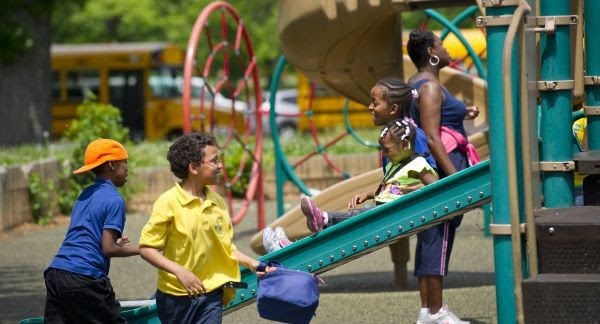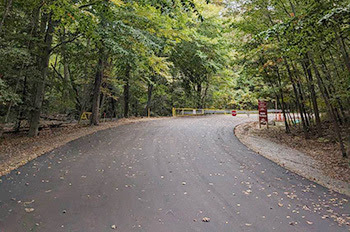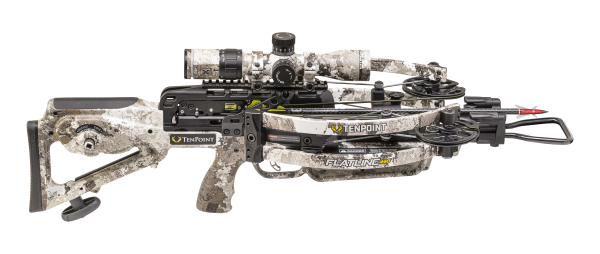21 communities to share $14.2 million in Michigan Spark Grants
The DNR received more than 460 applications for the dedicated American Rescue Plan Act funding
Nearly three years after the start of the COVID-19 pandemic, almost two dozen of the hardest-hit Michigan communities are benefiting from $14,178,900 in Michigan Spark Grants funding – a big boost toward creating, renovating or redeveloping public recreation opportunities for residents and visitors.
“Every Michigander in every community deserves access to the great outdoors to connect with nature, exercise, and spend time with friends and family,” said Gov. Gretchen Whitmer. “These Spark Grants will fund a variety of public recreation projects across our state, including accessible trails at a Flint park, a rebuilt splash pad in Muskegon, and new bike racks, picnic tables and benches at a park in Sault Ste. Marie.
“Under the bipartisan Building Michigan Together Plan that I signed last year, we made the largest one-time investment ever in our state and local parks,” Whitmer said. “Now, we’re delivering those resources to move dirt and make a real difference in people’s lives while supporting good-paying jobs along the way.”
Open grant awards list
Michigan Spark Grants, administered by the Michigan Department of Natural Resources, offer the DNR a chance to reach people in communities whose economic opportunities and public health were most affected by the COVID-19 pandemic. This reimagined approach activates historic support for projects that provide safe, accessible public recreation facilities and spaces to improve people’s health, introduce new recreation experiences, build on existing park infrastructure and make it easier for people to enjoy the outdoors.
Two key ways these grants differ from the department’s existing recreation grant programs are that applicants can seek up to $1 million for a single project and there is no 25% match requirement.
In total, the DNR considered 462 applications requesting more than $280 million – figures that far eclipsed what the department is used to. In comparison, the DNR’s top three recreation grant programs – the Land and Water Conservation Fund, the Recreation Passport and the Michigan Natural Resources Trust Fund – usually field a collective ask of around 150 applications seeking between $50 million and $60 million annually.
“The response was more than we could have imagined,” said acting DNR Director Shannon Lott. “Clearly, the Michigan Spark Grants opportunity and outreach have tapped into a critical need in many areas of the state, and we are proud to deliver support that will help create and restore the quality public recreation resources that we know can improve public health, anchor communities and strengthen a sense of place.”
Some of the funded projects in this round include:
- $1 million to rehabilitate the St. John Street Neighborhood Memorial Park along the Flint River, in Genesee County, through improved and accessible trails, parking and a kayak/canoe launch, plus a new playground.
- $716,600 to revitalize Alford Park in Sault Ste. Marie, in Chippewa County, with the addition of accessible pedestrian paths and amenities such as bike racks, picnic tables and benches.
- $475,000 for replacement of the aging boardwalk at the Covert Park Beach and Campground, located along the Lake Michigan shore in Van Buren County.
- $393,000 to renovate the Marlette Community Park, in Sanilac County, with an accessible walking trail and playground equipment and updated pavilions.
- $250,000 to rebuild the city of Muskegon’s existing community splash pad, in Muskegon County.
All first-round grant recipients and project descriptions are available on the Michigan Spark Grants webpage.
Building the program
This grant opportunity is possible because of the Building Michigan Together Plan, signed in March 2022, which included a historic $450 million infusion of federal American Rescue Plan Act funding in our state and local parks. The DNR was tasked with administering $65 million of that total to:
- Leverage federal, state, local and private resources toward a sustainable public recreation development program.
- Provide a clear, simple and equitable grants distribution process in support of public recreation.
- Align project partners and community organizations so resources are maximized, and roles and responsibilities are clearly outlined and balanced.
Recognizing that more needs to be done to help under-resourced communities overcome barriers in accessing grant opportunities, the DNR sought advice and perspective from philanthropic, planning and other groups with relevant expertise.
The advisory group — with representation from the DNR, the Council of Michigan Foundations, the Michigan Association of Regions, the Michigan Trails & Greenways Alliance, the Michigan Municipal League, the Michigan Department of Transportation, the Michigan Recreation and Park Association and the Ralph C. Wilson, Jr. Foundation — focused on staying true to the program’s intent in making recommendations on scoring criteria and application requirements. Members also advised on a strategy for fund disbursement, though the DNR is ultimately responsible for how and where to leverage this funding.
“We started meeting last summer to talk about how best to frame the grant opportunity and identify communities most in need of this economic support,” said Clay Summers, executive director of the Michigan Recreation and Park Association, a member of the advisory group. “We took a lot of time and care in trying to define the program and streamline the application process, and the overwhelming response only reiterates the importance of these funds. The advisory group has been working together to continue to improve the process to try to alleviate the burden on the applicants.”
Moving forward
“The demand and raw value of this program tell us there is an even greater need to reach into those regions, build a stronger network of philanthropic support, and make certain that all communities have the knowledge, tools and confidence they need to take advantage of grant resources,” said DNR Director Lott.
Given the overwhelming interest in these first-round grants, the DNR will work with the advisory group to determine next steps and application timeline, as well as look at opportunities to work with Michigan’s broader philanthropic community on ways to remove additional barriers to grant funding. Approximately $50 million in additional Michigan Spark Grants is expected to be awarded later this year.
Lott encouraged applicants who did not receive Michigan Spark Grant funding in this round to explore the department’s other recreation-centered grant opportunities, including the Land and Water Conservation Fund, the Recreation Passport and the Michigan Natural Resources Trust Fund programs. Applications for these three programs are due April 1 each year.
Learn more about the Michigan Spark Grants program — and all DNR-administered grant opportunities — at Michigan.gov/DNRGrants.
Contact: Dan Lord, 517-290-5603 or Jessica Mistak, 906-280-8876





